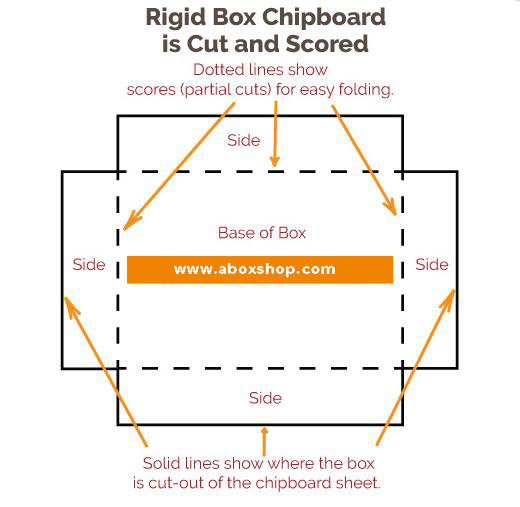Type of packaging – Rigid box
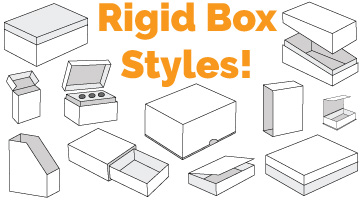
Rigid Boxes (also called “Set-Up Boxes”) are a very common type of packaging and they are often associated with luxury products. Rigid boxes are typically four times thicker than an average folding carton and are not usually printed on directly. They are instead wrapped with paper that can be as plain or luxurious as desired.
Rigid boxes, as the name suggests, are rigid and sturdy. Think of the classic “Shoe Box”. If you’ve ever purchased a nice pair of shoes or heels, they will have been packaged in a rigid box. Board games are another classic example of rigid box packaging. iPhones and other high-end electronics use rigid boxes, as do many beauty and high-end food products and spirits, just to name a few.
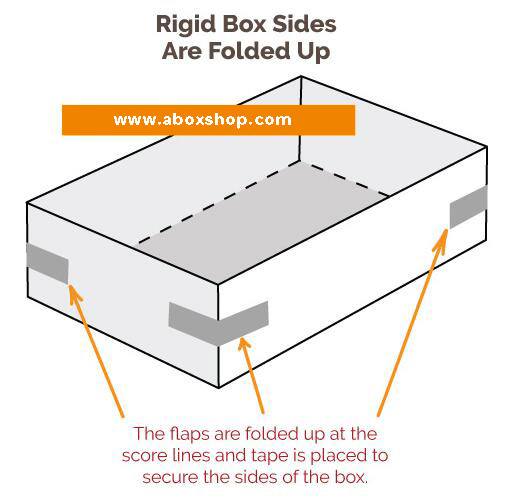
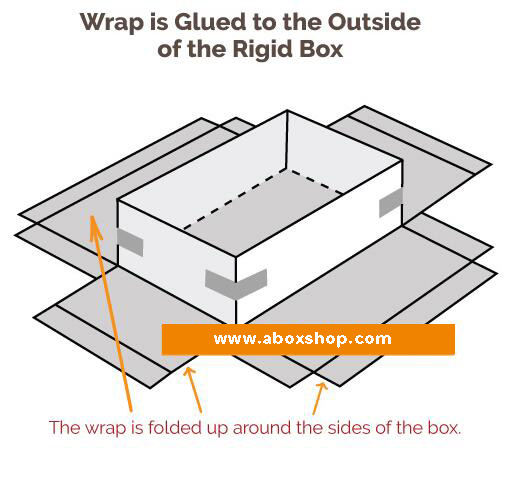
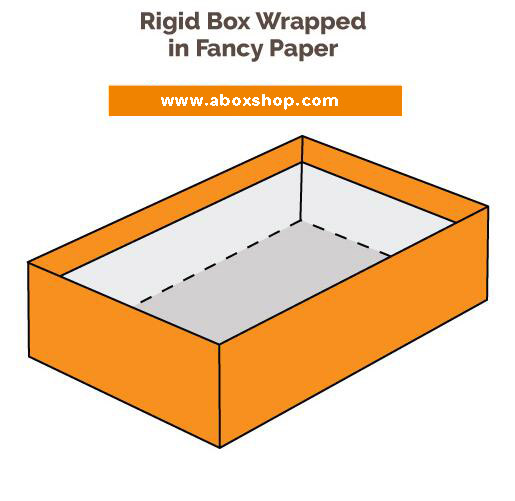
Rigid Box Styles
Rigid boxes consist of basically two parts – a lid and base (or top and bottom). The shapes and sizes of rigid boxes vary greatly – square, rectangular, circular, triangular, V-shaped etc. But in the packaging industry rigid box styles are usually categorized and described by the type of lid used.
And, as with a lot of things regarding the packaging industry, these boxes come in all sorts of variations and hybridizations where names become interchangeable depending on the manufacturer.
“Telescope Lids” – Rigid Boxes
Telescope lids have a lid that covers either the entire base, called a Full Telescope, or just part of the base, called a Partial Telescope.
A Full Telescope lid, like on chocolate or candy boxes, have a lid that covers the entire base of the box. This particular example has “thumb cuts” to make opening the box easier.
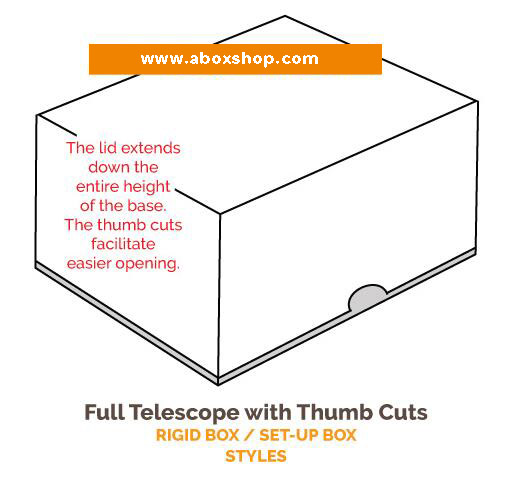
Partial Telescope (also called Partial Cover) rigid boxes are exactly what you’d expect, the lid only partially covers the base.
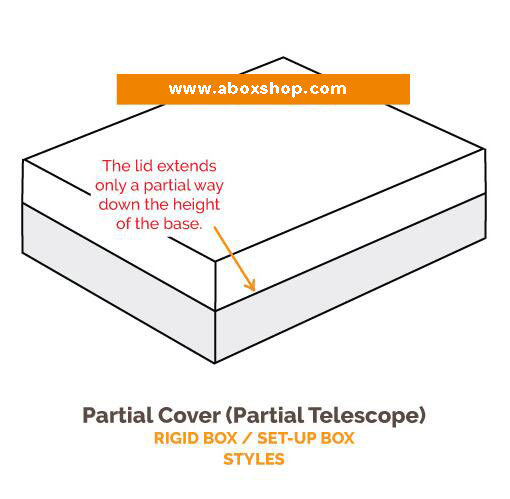
The Classic Shoebox mentioned earlier is a style of lid that has a lip that is, traditionally, 1 inch deep.
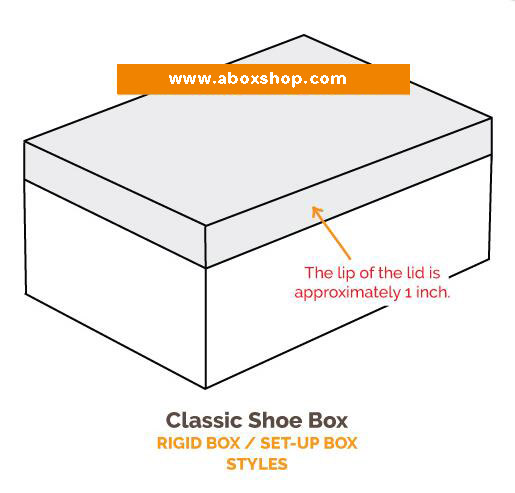
Don’t let the name of this rigid box style influence you, the classic shoebox style doesn’t have to be used for just shoes.
This next example is a full telescope style (because the lid completely encompasses the base or bottom of the box) known as a Tray with Sleeve or Slipcase or Shell and Slide.
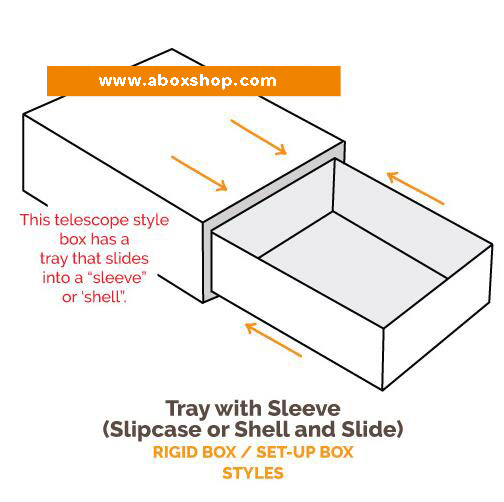
The next example is a type of partial telescope box called a Neck Box or Shouldered Box or Shoulder Box. A tray is glued inside the base and protrudes up past the top of the base. This protrusion creates a “neck” and the top edge of the base becomes the “shoulder”. Sometimes the tray that creates the neck is glued to the inside of the lid instead of the base. The box still functions in the same way, however.
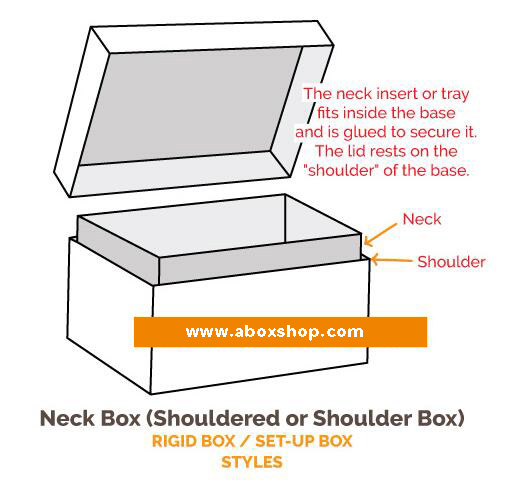
Sometimes the “neck” is made extra long and it protrudes past the lip of the base so much so that it creates a gap between the lid and the base. This is done mostly for esthetic reasons.
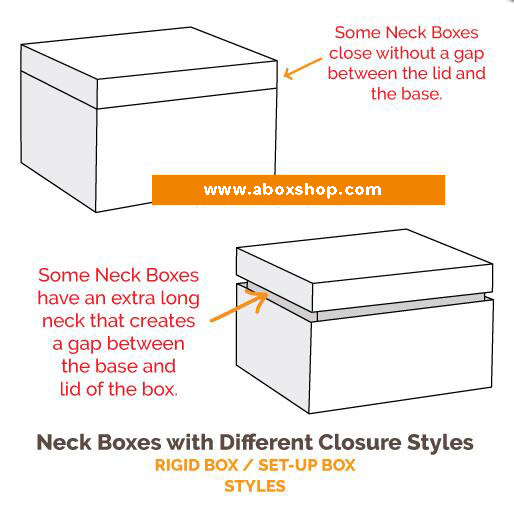
“Hinged Lids” – Rigid Boxes
This is where the rigid box lid is attached permanently and stays closed using gravitational forces (free of cost) or with a magnetic strip or a ribbon binding (costs a little extra). These boxes are great for frequent-use products that are meant to be stored in their packaging in-between uses.
There are many different styles of hinged lid rigid boxes. And here are some popular styles.
Flip Top or Cigar Box is a classic and versatile style of rigid box. Traditionally it has been used for high-end cigars, but can, and is, used for almost anything.
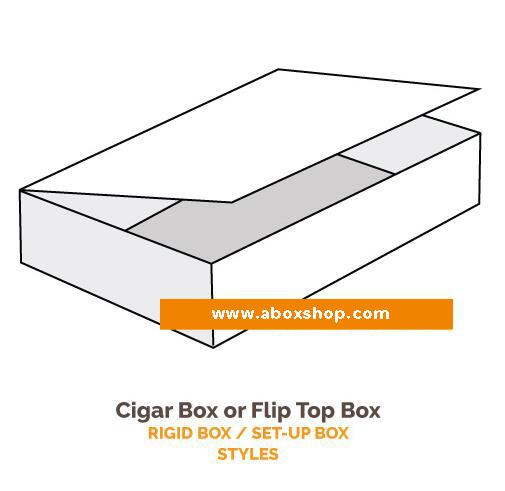
Here is a variation of the Flip Top or Cigar Box – The Book Style rigid box, when closed, resembles a hard cover book. This style is commonly used to package everything from luxury food items to clothes to beauty products and consumer electronics.
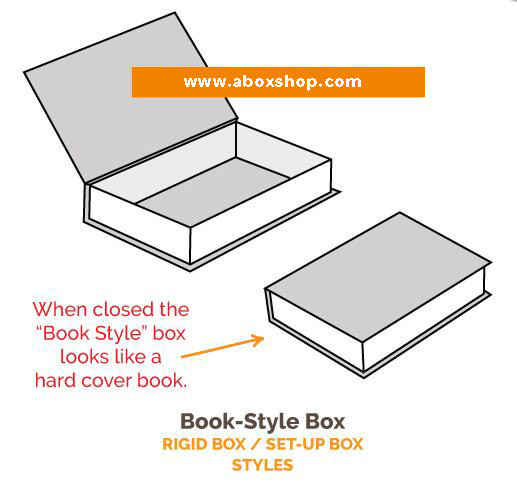
Clamshell Style is found in many other types of packaging, not just rigid boxes. Corrugated packaging as well as folding cartons and thermoform / blister packaging utilize this style.
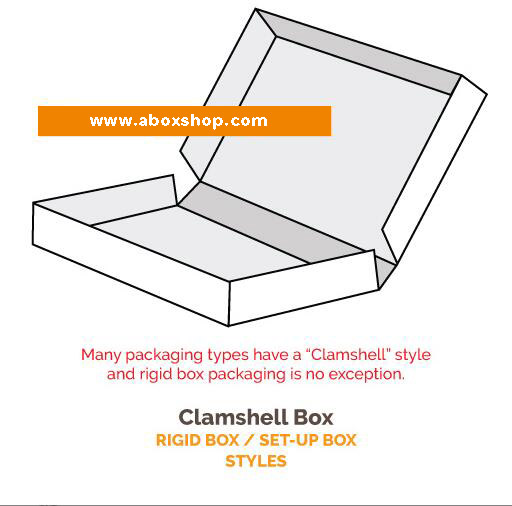
As mentioned previously, the rigid box has so many variations that it would be nearly impossible to list them all; add on top of the that a plethora of possible extras such as platforms, compartments, magnetic closures, windows, ribbon pulls, handles, etc. But the above examples should give you an idea of the common fundamental styles.
Rigid Box packaging is not simply about luxury. It can (and should) be considered in lieu of a folding carton when protection and durability during transport and the often rough retail environment are major factors. In addition, in the consumer’s home, where repeated use and storage of the product in the box is an asset, rigid boxes will add value for your customers.

